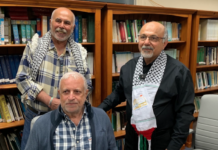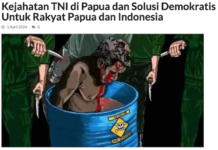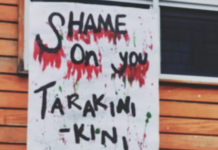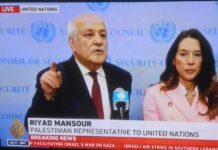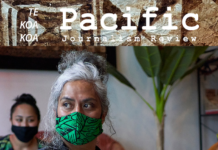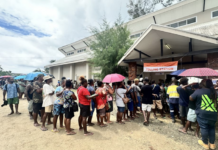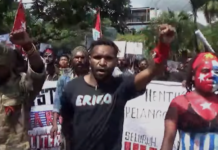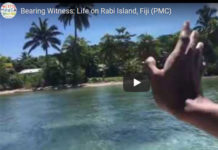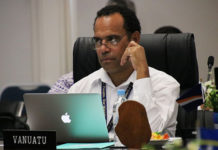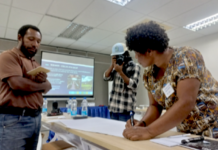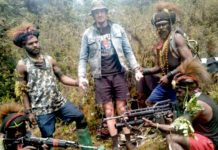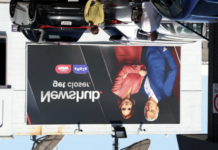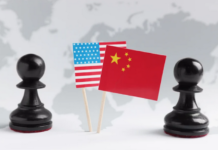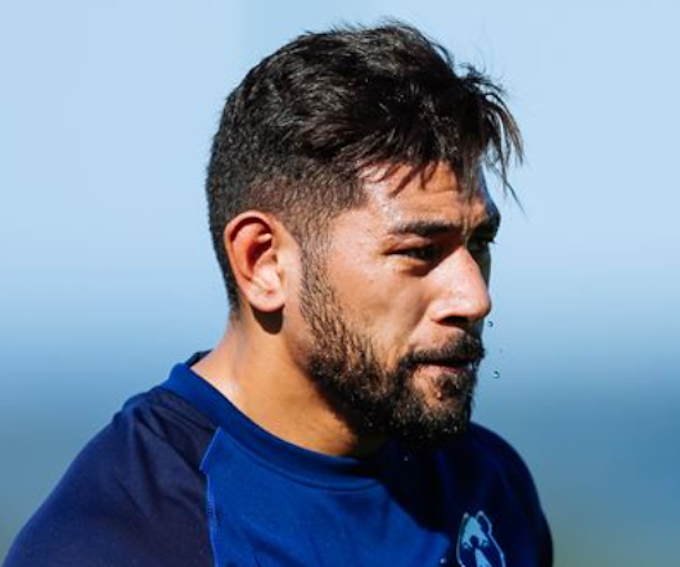
By Sri Krishnamurthi for Asia-Pacific Report
The world’s highest paid rugby player, Charles Piutau, is delighted he will be eligible to play for Tonga now that World Rugby has changed its eligibility rules last month.
In one of his rare New Zealand interviews, he told Pacific Media Network’s Tongan programme with Tangata Pasifika’s John Pulu he was surprised and relieved that world rugby had changed its eligibility rules.
The 30-year-old, who played 17 tests for the All Blacks and whose last test was in 2015, is currently playing for the Bristol Bears for a whopping 1 million pounds sterling (NZ$1.92 million) a year — along with South Africa’s Handre Pollard who earns the same amount for Montpellier.
From next year players can change allegiances if they were born in the country they want to represent or have a parent or grandparent born there; they can switch only once and there is a stand-down period of three years from international rugby.
Charles (Salesi) Piutau always had the intention to play for Tonga but “in the past its been quite tough and there was a loophole (Olympic rugby sevens), but unfortunately I couldn’t go to those tournaments.”
However, recently former All Black Malakai Fekitoa exploited that loophole to play for Tonga in their Olympic qualifier.
“It then led to World Rugby to vote on this eligibility rule and all honesty I didn’t think it was going to pass because in the past when the vote came about it didn’t reach the 75 pecent [votes needed to pass the resolution] pass mark for it to be approved,” said the fullback.
Trainers were smiling
“In the past we’ve had the Pacific Welfare group led by Daniel Leo, who has voiced his opinions on this, but on the day at my club a few of the trainers and physios were there and they were smiling and I wasn’t sure what they were smiling about but they eventually told me that the law had been passed.
“At first I was really surprised but it sank in and I was very happy that it has happened for the Pacific Island teams,” Auckland-born Piutau said.
“Both my parents were born in Tonga and moved over to New Zealand for better opportunities for us kids and at home they spoke Tongan and see my brother (Siale) represent Tonga as well it has always been close to my heart and having this opportunity is the best of both worlds,” Piutau said.
“To put on the red jersey means a lot and speaking to my parents they are excited and very proud of this opportunity.”
Just like in the 2017 rugby league World Cup where Andrew Fifita (Australia) and Jason Taumalolo (New Zealand) switched allegiances to Tonga where they beat New Zealand, Samoa, and Scotland in front of a sea of red clad fans in Auckland the Tongan red and white-cross of St. George flag flew proudly.
Those scenes were re-enacted two years late when Tonga beat Australia 16-12 and now with the change to those rules in rugby union European-based former house-hold names like Piutau, Fekitoa, Ngani Laumape, Julian Savea, George Moala and Steven Luatua can be expected to play for Tonga at the next rugby World Cup in France in 2023.
Should Tonga qualify for the next World Cup they will go into a pool with South Africa, Ireland and Scotland.
Welcomed the change
Fijian Isa Nacewa, who played two minutes for Fiji in the 2003 World Cup and then tried to make himself available for the New Zealand sevens team has welcomed the change.
“It is ground-breaking isn’t it, I said it was the elephant in the room, but I’m overly stoked to be proven wrong that you know things have changed with time and the powers that be have actually in this case and listened and taken on all the words and all the feelings of everything around the world and around this issue,” said Nacewa.
“So, it’s absolutely phenomenal and it is literally a game changer. One for the little nations but just in rugby in general.”
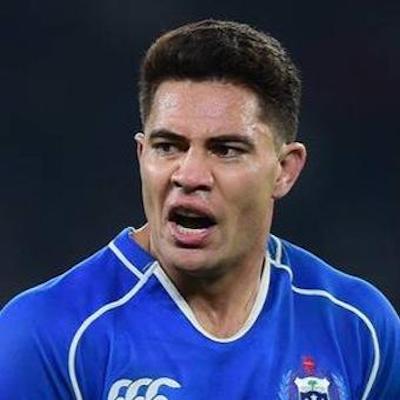
Pacific rugby players welfare head Daniel Leo declared himself pleased with the result, but it was surprising, and he didn’t expect it to go the way it did.
“There was a 75 percent threshold to get this across the line, which always made it extremely difficult from the get-go. But, lobbying over a number of years, like ourselves and a lot of unions, Bill Beaumont (boss of World Rugby) and World Rugby… and credit to them because it was a really positive outcome.
“Every time it has been tabled in the past it was negative outcome, so I am amazed, you never get your hopes up but it is through and that’s the main thing,” Daniel Leo told the Devlin Radio Show (DRS).
Leo said the welfare was set-up seven years ago for exactly the same reason.
A lot of injustice
“This is one of the key aspects around when we set up the organisation, myself and a lot of Pacific Island players around the world came together and we said we feel like there’s a lot of injustice in the game.
“So, we needed an organisation that had a voice a credible voice that could put pressure on these sorts of decisions, and it’s been long journey since then,” he said.
Leo said it would make an immediate impact on the game and for Pacific Island nations.
“In the short term it’ll be massive, for me the goal has always been to make the Pacific Islands sustainable financially. Having superstars come back will have an impact on the results.
“Sponsorship, hopefully getting more tier one nation matches and more revenue that we can put into the grassroots so in a 10–15-year period we don’t need this regulation anymore because we’ll have all the resources that we need.
“It’s a short-term fix for our for a long term problem. But there’s still other issues that we need to address,” said Leo.
He was referring to the revenue share model where currently the hosts get to keep all the gate taking receipts.
No revenue share model
“There is still no revenue share model in place, so for example when Tonga plays England in front of a sell-out crowd Twickenham (capacity 82,000), there is no revenue share,
“Tonga get nothing for that and that needs to change.
“We need to be able to capitalise on this. There’s no reason why a team like Tonga that could have Malakai Fekitoa, Charles Piutau and Ngani Laumape should be playing for free in front of their audiences in England.
“So, there are still challenges. But this is a great step, and we’ll celebrate the victory but it’s a battle in a bigger war,” said Leo.
The Pacific rugby player welfare had to weigh-up long and hard before it went into battle for this rule change.
“It’s not about players coming back at the end of their careers and that is the negative spin on it. That you possibly be taking away from younger players who could make the team, but this is about the union’s injecting the resources that we’ve lacked years and years to be able to invest at the grassroots to make sure that we’re not relying on guys coming back to the end of their careers forever,” he said.
New Zealand was one of countries that backed the eligibility rule changes.


